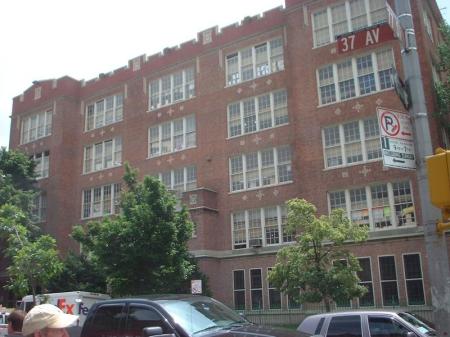
Sept. 16, 2015 By Jackie Strawbridge
Back to school means back to the store, for hours-long trips in search of folders, glue sticks, marble notebooks and everything else on parents’ annual classroom supply lists.
For many parents and educators, lengthy school supply lists have long represented a necessary evil in resource-strapped schools.
However, during a discussion last Thursday at District 30’s Community Education Council, which covers Long Island City, Astoria, Jackson Heights and parts of Sunnyside/Woodside, many wondered whether local action could be taken to improve the process.
Each school determines its own classroom supply requests. They must weigh supply costs against professional development, equipment and textbook needs, according to the Department of Education’s budget and resource guide.
Although no school can mandate classroom supply purchases, some CEC members noted that the supply lists have been written in a way that implies they are not optional.
“Personal Supplies: Please send in the FIRST DAY of school,” begins a list provided by CEC member Robert Novak, whose daughter attends first grade at PS 122 in Astoria.
The list includes fifty Crayola crayons, four composition notebooks, one pack of computer paper and two boxes of baby wipes, among dozens of others. It is highly specific, calling for Expo markers, Elmer’s glue and Bounty paper towels.
“As a new parent to the school, I didn’t get that impression [that these are optional],” Novak said.
He also recalled an earlier statement by District 30 Superintendent Philip Composto that District 30’s poverty rate is 84 percent.
“Is it appropriate, in a district where 84 percent are living in poverty, to have them open their folders on the first day of school and see what amounts to a bill for hundreds of dollars?” he asked. “And if you can’t afford it, you’re starting the year off feeling embarrassed.”
The first grade supply list at PS 280 in Jackson Heights is presented as a checklist, and includes items such as a box of 25 to 50 sheet protectors, four composition notebooks and two boxes of tissues. PS 78 in Long Island City’s first grade list includes nine composition notebooks labeled for different subjects, different colored folders, scissors, tape and two boxes of pencils, among others, all labeled by name.
PS 166 in Astoria lists six notebooks, two pencil packs, three glue sticks and more for its students, as well as a secondary list labeled “donations” for the class, which includes tissues, soap and hand sanitizer.
“When you ask children to come in the first day of school with eight marble notebooks with your name on it, and the kids who don’t come in with the eight marble notebooks – it is a shame,” Karen Schumacher, PTA President for PS 150 in Sunnyside, said. “It’s very clear who does and does not have.”
For his part, Composto responded, “[say] you’re a teacher. What do we do when we don’t have the supplies? Does that mean when the kids sneeze, we don’t have tissues for them? What do we do when we want copy paper?”
“It would be great if we had more money, but we don’t have that money,” he continued.
Following Thursday’s meeting, CEC 30 identified what co-president Deborah Alexander called a “two-pronged approach” to address the issue.
The first prong would be lobbying the City and State not only for increased school funding, but also potentially for a specific line item for classroom supplies, Alexander explained.
The second prong includes a number of more immediate goals.
The CEC considered suggesting that schools add disclaimers to lists, to indicate that all supply purchases are optional. However, Alexander noted, “[parents] wouldn’t necessarily buy school supplies, and then we’d have no school supplies.”
The group was more optimistic about crowd-funding options, where school communities could donate to a single pot, rather than put individual families on the spot for supplies. This method would also allow schools to buy items in bulk, for a cheaper total cost.
The CEC is also considering how to encourage classroom donations from businesses and nonprofits.
“In the best of worlds, we should have these supplies. But at the end of the day, we’re limited [in the] amount of money,” Composto said.
